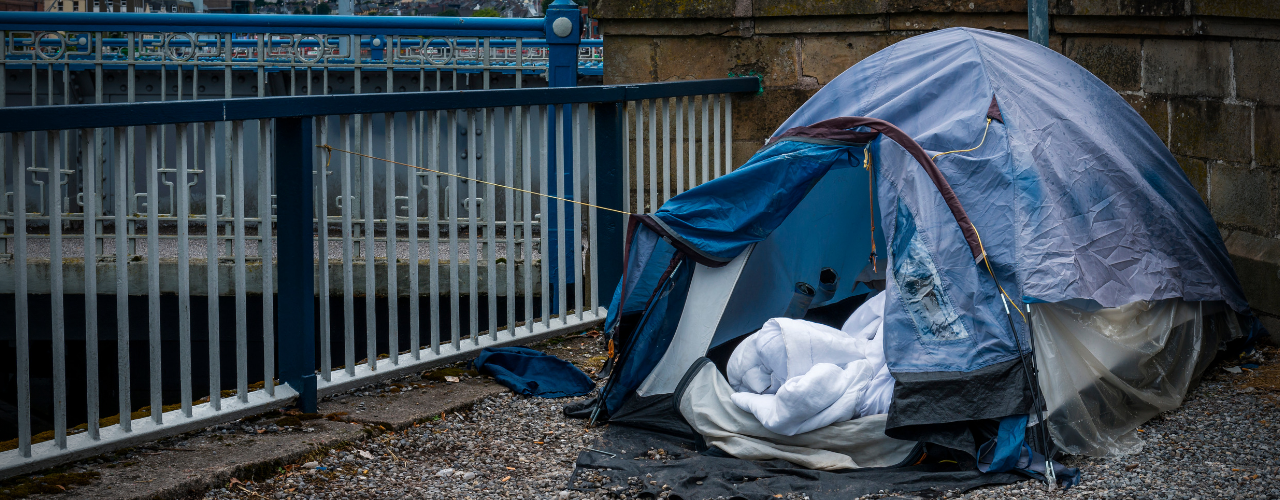
Social theologian and Director of the Jesuit Centre for Faith and Justice Kevin Hargaden told The Irish Catholic that the “homelessness catastrophe, which has plateaued largely because of the eviction ban,will now almost certainly jump – unless there’s a mass intervention on rent arrears”.
This is one of three potential crises facing Ireland in the housing sector, Dr Hargaden said. The other two are the complete lack of investment in social housing and an “affordability crisis”, where young professionals are unable to access the housing market due to exorbitant prices. The situation, he said, “is absolutely dire, we’re facing a tsunami of homelessness and a dysfunctional housing market, the likes of which we’ve not seen in the history of the state”.
But this cannot be blamed on the pandemic, which has instead seen a decrease in the number of people in homelessness. The number of people in emergency homeless accommodation fell by 2,000 people between January and December 2020, the largest decrease to date according to Focus Ireland.
Equally, this is an issue that has been increasing for a long time. Consistently over the last generation, we have had the highest rental increases across the entire western world, according to Dr Hargaden. He argues that the dysfunction of the market is down to a lack of investment in social housing and a reliance on subsidies as a remedy. “Every submission that has been proposed there has our alarm bells ringing because it has the possibility to inflate the market further,” he explains. “When you subsidise a product, that’s just integrated into the sale price, turned into pure profit.”
Social housing
“I’ve a friend in Edinburgh who’s a medical professional with the NHS. She’s a first time buyer using a similar scheme in Scotland. The support the scheme provides is £25,000 and as any first year economics student could tell you, the prices have risen by £30,000. Now the Irish Government is planning a similar scheme.” As to social housing, just 5,000 new social houses were built in the last year, Dr Hargaden says. This is despite Government claims that more than 22,000 were built, a figure that is largely made up of private housing that has been effectively re-categorised as ‘social housing’, the Jesuit Centre for Faith and Justice argue. The issue has been further exacerbated by the pandemic, which halted much of the construction sector.
“We spend €2 million a day on housing assistance payments which function as a subsidy from the public exchequer into the back pockets of private investors,” he says. “That could easily be spent on building social houses, but for ideological reasons, it isn’t.”
The Government’s reluctance to build social housing is down to “ideological commitments”, Dr Hargaden contends. He argues that an overreliance on the market to provide solutions and a false narrative which suggests renters and landlords are on a level playing field influences Government decisions. Dr Hargaden uses the example of the decision to end the eviction ban to illustrate his point.
“The eviction ban we’ve had the last year is the clearest example of housing policy in recent times that has had a positive effect on evictions and on homelessness,” he says. “It was introduced reluctantly, for short periods of time and intermittently updated. Despite the general goodwill of an eviction ban at the beginning, it has gradually been eroded.”
Policy
“The current Government likes to talk about evidence based policy. Here we have an example of a policy having a great effect and it’s being removed arbitrarily due to external pressures from particular sectors in society who are already strong. We know that the pandemic has affected disproportionately people who were already struggling to make ends meet. It’s the people who in are in frontline, low-paid, precarious work – maybe juggling a couple of jobs – they’re the people really struggling and they’re going to be the ones worst hit by removing this eviction ban.”
Ending the eviction ban, he argues, benefits those who are already strong – particularly large, multinational organisations who own hundreds of properties around the country.
“What you’d actually have with the current arrangements is that the REIT’s (real estate investment trusts), the large investors who own hundreds of properties, they will send out a blanket eviction notice.And because there’s no scrutiny on their motivations because of this radically un-Christian understanding of property ownership the Government has, then the evictions are going to occur en masse.”
Dr Hargaden and the Jesuit Centre for Faith and Justice argue that there are a number of obvious steps that must be taken to improve the situation, such as increasing the number of social houses being built and introducing a rent eviction jubilee akin to the ban during the pandemic, citing the examples of cities like Vienna and Madrid.
Structures
“People really have to question if they want to continue supporting the political and social and economic structures that are making it extremely difficult for ordinary people to know that they’ll be able to put a roof over their children’s head next month and next year,” Dr Hargaden says.
“We’re failing people in precarious housing situations or who are actively experiencing homelessness.And we’re failing people who in previous generations would otherwise have been well able to purchase their own homes.”

